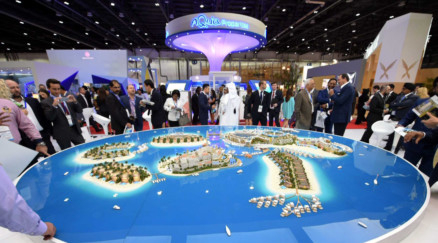
As a trailblazer in the region’s freehold market, Dubai’s real estate sector continues to receive investor sentiment from around the world. From adjusted returns on risk, liquidity potential and capital appreciation, Dubai’s market remains a promising investment. As the market continues to grow and mature, new buyers continue to enter the market. Now more than ever, Dubai residents are choosing to buy and invest in off-plan communities, rather than renting long term.
In the 1990s, the first freehold property project in Emirates Hills initiated a new approach to housing development and the buying paradigm focused on investment interests rather than demand-driven dynamics. This archetype has sparked new developments across the emirates with investments from over 200 different nationalities, many of whom do not live here. Now there is greater focus on increasing investments and property ownerships from expatiates already living and working in Dubai.
Challenges
As these first-time buyers continue to enter the marketplace, it does not come without its inherent challenges. New buyers should reference and use Dubai Land Department’s (DLD) services, the leading authority in real estate in Dubai. By leveraging the DLDs resources, buyers can protect themselves through credible market research that help make sound investment decisions and a listing of approved developers, brokers and property managers.
As new communities emerge, buying off-plan continues to have its financial payoff. If new buyers decide to buy off-plan, proper due diligence is required. While the DLD continues to enact legislation that protects all stakeholders and promotes transparency, it is important that clients are empowered in the decision-making process and have a holistic understanding of their potential yields versus risks. The DLD can provide new buyers with a list of recent projects and names of developers of both completed and under construction projects, confirm escrow accounts and all other property registration functions. In the future, a real estate review system will be introduced to the market and it serves as a powerful tool, providing feedback for both developers and brokers in real time.
Long-term thinking
For new buyers, it is important to recognise that property investment is about long-term asset creation and not for quick wins. New buyers should set realistic criteria, budgets and determine if the property will be for investment or for residential use. They should understand the profitability of their investment by determining the cash flow income and any potential risks associated with their purchase. With the accessibility of finding properties online, this can be done easily. Buyers can use private websites and search engines, as well as the Real Estate Regularity Agency (Rera) rental index to familiarise themselves with prices.
Employing a life cycle-costing approach in decision making can also assist new buyers in identifying and assessing economic impacts over the total lifespan of their investment. It is important that new buyers do not simply focus on their initial capital investment, but instead understand their future operational costs, which are often downplayed in the buying decision-making process. For example, consider investing in LEED-certified properties and/or buildings that use a green approach to construction. This can save you on utilities and improve the overall quality of the building.
Rera continues to play an active role in monitoring the compliance of developers, brokers and other licensed real estate professionals with applicable laws and regulations to protect both investors and the wider interests of the market. But it is up to the investor to understand their rights. However, as the market continues to expand and embrace new blockchain technology, trusts and crowd funding tools will be more feasible and will add a new layer of efficiency and transparency to Dubai’s real estate sector.












